Chinese restaurants worry about cost of packaging ban
Updated: 2015-01-12 11:02
By NIU YUE in New York(China Daily USA)
|
||||||||
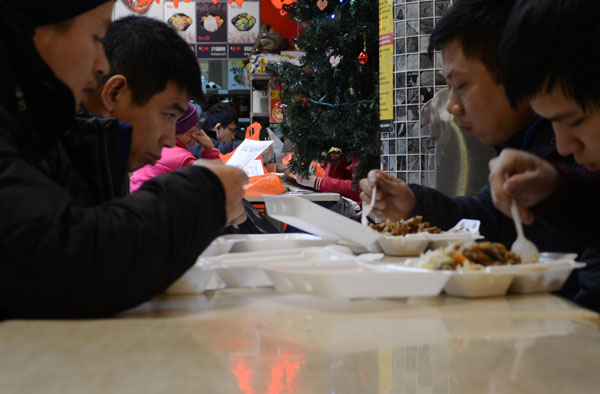 |
|
Diners eat at Fei Long Food Court in New York on Jan 9. All their food is contained with plastic foam that is to be banned on July 1. Lu Huiquan / For China Daily |
Min Wang sells stewed meat at Fei Long Food Court on 8th Avenue in Brooklyn and packs every sale into an 8-ounce lunch box. Starting on July 1, Wang and other businesses that use the white foam packaging will have to put the food into something else as New York City's ban on expanded polystyrene goes into effect.
"That will be where our profits come from," said Wang, pointing to the boxes. "If prices go up, people might not come anymore. Some weaker restaurants may not make it."
He's not alone with his concern that the ban on polystyrene coffee cups and takeout containers will mean paying more for alternative packaging. Most take-out dishes at Chinese restaurants and other eateries, as well as at food carts, are served in plastic foam dishes or bowls because of their relative inexpensiveness and they serve as good insulators to keep food warm.
But in announcing the ban on Jan 8, Mayor Bill dBlasio said in a statement: "These products cause real environmental harm and have no place in New York City. We have better options, better alternatives, and if more cities across the country follow our lead and institute similar bans, those alternatives will soon become more plentiful and will cost less."
However, these "better" options "will be a cost increase for Chinese take-out businesses," said Peter How, president of the Asian American Restaurant Association with more than 200 members in New York City. He estimates that for each dish the packaging cost will increase around 10 cents, a seemingly negligible amount but it will add up.
Lisa Liu, manager of a Chinese-owned bakery near 8th Avenue, agreed. "We may have to charge a little bit more then," said Liu. She said she has no immediate plan to raise prices because the ban is still half a year away.
Environmental groups have long decried the plastic foam products as a hazard that clogs the nation's landfills, and in his final state of the city address in 2013, Mayor Michael Bloomberg proposed the ban.
The Restaurant Action Alliance, a lobbying group, criticized the legislation, saying it would increase costs for the city's some 18,000 restaurants. It cited a study that said for every $1 spent on polystyrene foam products, restaurants will have to spend at least $1.94 on replacements.
In December 2013, just before Bloomberg left office, the City Council passed a compromise measure that gave foam defenders a year to prove to the sanitation commissioner that "dirty foam" could be collected, recycled and sold in an economically viable way.
On Jan 7, city officials said that the foam was not recyclable and that they had not found any established markets where it could be sold. The next day de Blasio announced he was going ahead with the ban.
Michael Westerfield of foam manufacturer Dart Container Corp called the ban a "bad decision". "All they're really banning is takeout," he told the New York Daily News. "There's still going to be packaging and foam boxes."
The city will give a six-month grace period until Jan1, 2016, before imposing fines. To minimize negative financial impact on restaurants, nonprofits and businesses with annual revenues below $500,000 can be exempted from the ban after proving that using other alternatives will lead to financial hardship.
The city's sanitation department estimates that about 28,000 tons of plastic foam waste was collected in 2014.
New York will be the largest city in the country with such a ban. More than 70 US cities have similar bans, including Washington, San Francisco, Seattle and Portland, Oregon.
Since 1995, multiple cities in China have imposed bans on plastic foam containers, and many restaurants have started to charge package fees to cover the cost of much more expensive recyclable materials.
Jason Wang, president of Xi'an Famous Foods, a Chinese fast-food chain with nine branches in New York City, told China Daily that his restaurants have been using more recyclable containers and have got rid of most plastic foam products.
With the new regulation, "there would be no unfair competition when everyone must use more environmentally friendly materials," said Wang. With take-out orders accounting for more than 60 percent of his business, he said his "corner-cutting competitors would be very happy to see us increase our costs and raise our prices."
Lu Huiquan in New York contributed to this story.
- Better testing to secure safe blood supply
- Girl infected with HIV from heart operation: official
- Taiwan culls 120,000 chickens after bird flu found in chicken farm
- We learn what is love from the 10-year-old schoolboy
- Girl copies TV character to score marks
- Shanghai nixes famed lantern festival after deadly stampede

 Time to become a woman
Time to become a woman
 The world in photos: Jan 5-11
The world in photos: Jan 5-11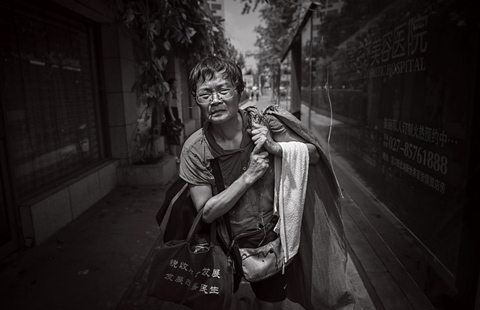
 66-year-old woman risks life, limb to pay off debt
66-year-old woman risks life, limb to pay off debt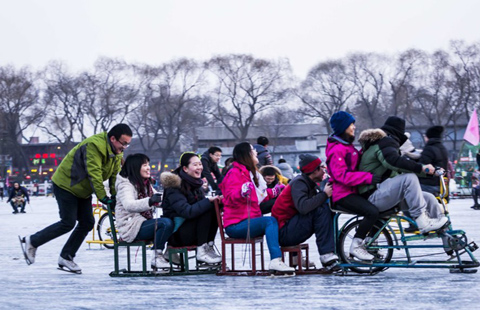
 Tourists heat up Beijing's frozen lake
Tourists heat up Beijing's frozen lake
 72nd Golden Globe Awards
72nd Golden Globe Awards
 Marching in solidarity: Paris 'unity rally' in photos
Marching in solidarity: Paris 'unity rally' in photos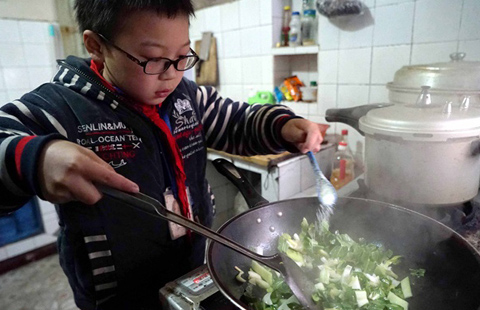
 We learn what is love from the 10-year-old schoolboy
We learn what is love from the 10-year-old schoolboy
 Girl copies TV character to score marks
Girl copies TV character to score marks
Most Viewed
Editor's Picks

|
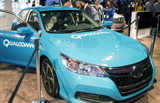
|

|

|

|

|
Today's Top News
Black Box of crashed AirAsia jet retrieved
Experts praise reform of Chinese leaders, past and present
Ambitious course set for airliner market
Chinese restaurants worry about cost of packaging ban
World leaders gather for Paris march
Better testing to secure safe blood supply
Shanghai nixes famed lantern festival after stampede
1st female pilot steers manned sub
US Weekly

|

|








